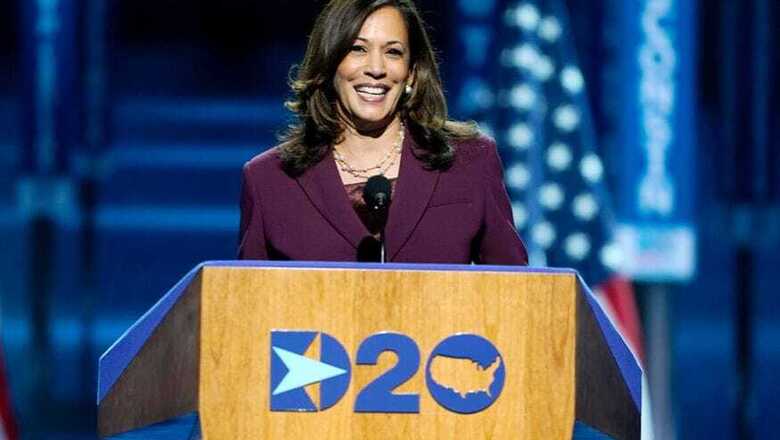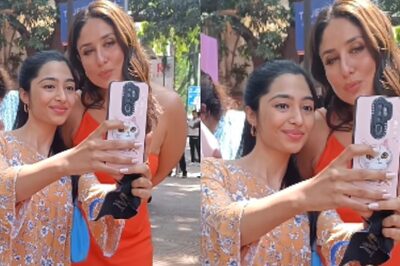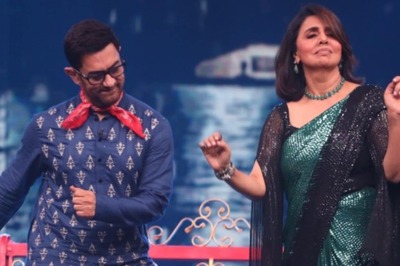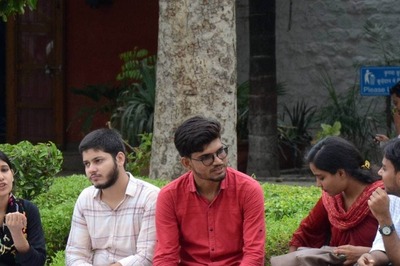
views
The last time Kamala Harris stepped onto a debate stage, her Democratic primary campaign was sputtering to a close — running out of money, trailing badly in the polls and fading as a force on policy issues. She ranked sixth in speaking time at that November 2019 debate; she dropped out of the race two weeks later.
Now, as she prepares to face off against Vice President Mike Pence on Wednesday and to play a starring role in the upcoming Supreme Court confirmation hearings, Harris will be tested as a national leader and a voice of the party unlike ever before. It is a singular challenge for Harris, who arrived in Washington as a senator in 2017: Can she best her opponents and make the case for Democrats while walking the tightrope of unique expectations that American voters still have for women in power?
Harris, who is the first woman of color on a major party’s national ticket, has tried to downplay expectations for herself in the vice-presidential debate, reflecting concerns quietly raised by some aides and allies that the standard for her success Wednesday has grown impossible to meet.
“I’m so concerned,” she said with a laugh at a fundraiser last month. “I can only disappoint.”
While President Donald Trump spent months waging relentless attacks on former Vice President Joe Biden’s mental acuity, lowering the bar for his opponent, Democrats have, by contrast, heralded Harris as a star prosecutor and talented debater, which carries its own set of risks.
Trump’s coronavirus diagnosis has injected another element of unpredictability and amped up the pressure on Harris and Pence to reassure a jittery public that they can step in as president.
Before Trump was hospitalized last week, Harris’ aides and advisers had wanted her to focus in particular on Pence’s stewardship of the coronavirus task force, tying the United States’ death toll directly to him. Campaign aides now say Harris plans to avoid personal attacks and commenting on the president’s condition. They also pushed for stronger safety protocols in advance of the debate, including strict enforcement of mask-wearing and testing. Already, the two candidates will be 12 feet apart, an increase from the 7 feet that was originally proposed, and they are expected to be separated by plexiglass.
Fiery exchanges have become a hallmark of Harris’ political career, and many Democrats are gleefully anticipating that her experience as a district attorney and a California attorney general means she will have no trouble holding Trump and his allies to account.
Dan Newman, a former adviser to Harris who started a super PAC to support her primary bid, said his group had prepared an advertisement to run in Iowa that featured footage of the California senator speaking in hearings. The ad, which never ran because Harris ended her primary bid, showed her challenging Brett Kavanaugh, the Supreme Court justice; William Barr, the attorney general; and Jeff Sessions, the former attorney general.
“Those exchanges have been some of the most important moments in her ascendence as a national leader in the party,” Newman said.
And one of the most pivotal moments of her presidential campaign was on a debate stage: She declared “that little girl was me” as she questioned Biden’s opposition to busing. Even “Saturday Night Live” poked fun at Harris for her ability to craft a television-ready viral moment.
One challenge for her — but also for the many Democrats who are convinced they are about to see Harris administer a rhetorical thrashing to Pence — is not to approach the debate like a cross-examination.
“It’s not the same skills,” said Robert Barnett, a Washington lawyer who has helped prep several presidential and vice-presidential candidates for debates. “I feel she’ll be equally good at it, but I think, again, it’s a mistake to assume that, just because one is a good prosecutor or a good cross-examining senator, that necessarily translates into a one-on-one debate.”
During mock debate sessions — which Harris is using to calibrate her prosecutorial skills — Pence is being played by Pete Buttigieg, the former mayor of South Bend, Indiana, and a onetime presidential candidate, according to people familiar with the preparations. Buttigieg was selected, they said, for his debating skills and knowledge of Pence’s record as governor in their shared home state, Indiana.
With so much at stake, aides and former advisers have for weeks tried to lower the bar by noting Harris’ uneven debate performances during the primaries and talking up Pence’s discipline as a debater and loyalty to the president.
“Pence is a professional communicator,” said Sen. Tim Kaine of Virginia, who debated Pence four years ago as Hillary Clinton’s running mate. “He was a radio talk show host before he was in politics, so he can deliver a line.”
Current and former aides say Harris is a prodigious preparer who spends weeks studying briefing books, brushing up on policy and practicing lines. She organizes her points on hundreds of index cards, a study tool from her days in law school. Before primary debates, campaign staff members would reprint the cards at least once a day, former aides said, tweaking lines and clarifying policy.
As Biden did before his first debate with Trump, Harris has suggested she does not want to fact-check Pence in real time, hoping instead that the moderator, Susan Page, the Washington bureau chief for USA Today, fills some of that role.
“I don’t necessarily want to be the fact checker,” Harris told Clinton last week during an interview on Clinton’s new podcast. She also drew a contrast between preparing for the vice-presidential debate and the primary debates. During those events, lined up next to other Democrats, she told Clinton, “it was mostly about speaking up about my position on various issues as compared to my colleagues on the stage.”
This time, she said, she has been particularly focused on mastering Biden’s policies, which at times have diverged from her own, as well as Pence’s and Trump’s to perfect her lines of attack. Her preparations have been overseen by Karen Dunn, a lawyer who helped lead debate prep for Clinton and former President Barack Obama.
For all Harris’ meticulous work, her team is deeply cognizant of the unique challenges facing her as the first Black woman ever to win a place on a presidential ticket. While many Democrats view Harris as a barrier-breaking hero, Fox News hosts and conservative media outlets have mounted relentless racist and sexist assaults on her reputation, painting her as a radical leftist.
Research has found that it is much harder for female candidates to be rated as “likable” than men — and that they are disproportionately punished for traits voters accept in male politicians, including ambition and aggression. At the same time, voters view their credentials more skeptically and question their toughness, a precarious situation that is so universal for women seeking leadership roles that it is known as the “double bind.”
Clinton, the last female nominee on a major party ticket, has spoken with Harris about the unique attacks that the vice-presidential nominee is likely to face because of her race and gender.
“What Mike Pence will try to do is somehow subtly undercut Kamala,” Clinton said at a fundraiser with Harris last month. “She has to modulate her responses because we know there still is a double standard alive and well when it comes to women in politics.”
At the same time, the campaign views Harris, the daughter of immigrant academics from India and Jamaica, as a valuable asset when it comes to wooing voters of color. Since Biden named her as his running mate in August, many of her campaign events have targeted Black and Latino voters — both critical voting blocs for Democrats — in cities with large nonwhite populations, including Detroit; Raleigh, North Carolina; and Las Vegas.
“She’s really speaking to, and represents, millions of us,” said Aimee Allison, the founder of She the People, a national network that advocates on behalf of women of color in politics. “She’s speaking directly to the voters who will put the Biden-Harris ticket over the top.”
Sydney Ember and Lisa [email protected] The New York Times Company




















Comments
0 comment